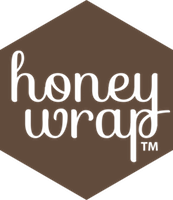News
-
February 24 2022 – Honeywrap Team
Covid’s Impact on Single Use Plastic - Time to Take Action!
Covid has impacted the world in more ways than one and an increase in the use of single use plastic is one of the many side effects that has occurred. With so many other issues that have arised from Covid, sadly limiting plastic usage has fallen to the wayside causing pollution to sky rocket. The increase in single use plastic...
Keep reading -
November 18 2021 – Wendy Oliver
The Guide to Sustainable Gift Giving
Christmas is here again and it is time to start buying Christmas presents, which if you’re anything like me is fun but hard to choose that perfect gift! After noticing how much rubbish was created over Christmas last year I did a bit of digging and came across a study that found that we throw away 25% more rubbish between...
Keep reading -
November 10 2021 – Wendy Oliver
Honeywrap and Forest & Bird Partnership!
Honeywrap is thrilled to be partnering with Forest & Bird for the fourth Year in a row! Honeywrap is passionate about reducing the amount of plastic on our planet – our amazing beeswax wraps are a sustainable, natural, reusable alternative to plastic for food storage. They are made in new Zealand from certified organic cotton and natural ingredients. Simply WRAP,...
Keep reading -
October 27 2021 – Honeywrap Team
8 Easy Ways To Ditch Plastic From Your Life
Travelling during my last holidays made me realised how much plastic waste us kiwis make. So, upon my return I decided to change some of my habits towards a more sustainable lifestyle. Of course, it does not mean that I have eliminated ALL the plastic from my life as that sounds a bit terrifying. However, by taking little steps I...
Keep reading -
August 26 2020 – Colleen Ceronio
Wrap up with Project Jonah
It has been a privilege to work with Daren and Louisa from Project Jonah to raise money to help such a worthwhile cause. Project Jonah is an awesome organisation responding to whale and dolphin strandings in New Zealand. As well as raising the profile of the plight of New Zealand marine animals and the need to educate people on what...
Keep reading -
July 01 2020 – Colleen Ceronio
Honeywrap is now working with Eat My Lunch!
The team at Honeywrap is committed to continuing to support organisations that are in line with our values such as Eat My Lunch. Over the past three years Eat My Lunch has provided over 1,527,000 lunches to kiwi kids from 76 schools. We at Honeywrap thought the work Eat My Lunch was doing was so awesome we decided to partner...
Keep reading





